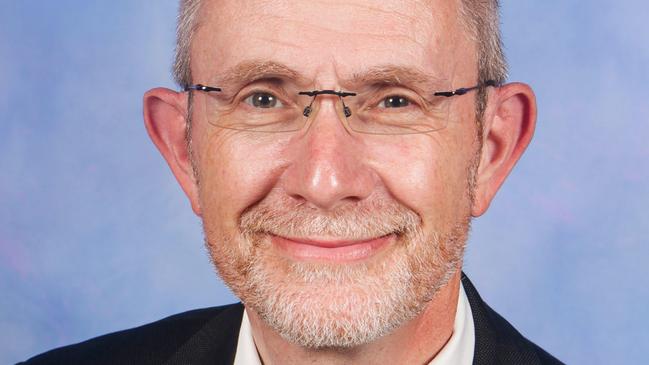Pro-Palestinian school protest ‘will stoke division’
Jewish schools in Melbourne have condemned plans to hold a ‘school strike for Palestine’, saying it would stoke division and potential violence in the community.

Jewish schools in Melbourne have condemned plans to hold a “school strike for Palestine”, saying it would stoke division and potential violence in the community by directly exposing school students to anti-Semitism.
Their angry response came as the Victorian Labor government refused to oppose the pro-Palestine school protest, while the Victorian division of the Australian Education Union and federal and state Greens backed the event.
The “citywide school walkout” for Palestine on November 23 promoted by Free Palestine Melbourne has been opposed by both the federal Education Minister Jason Clare as well opposition education spokeswoman Sarah Henderson and her Victorian state counterpart Jess Wilson.
It comes amid a sharp spike in anti-Semitic incidents around the country caused by the Israel-Hamas war, and a violent clash between pro-Palestine protesters and pro-Israel supporters in Caulfield last Friday which led to an increased police presence in Melbourne’s Jewish suburbs.
Victorian Premier Jacinta Allan refused to give her opinion about whether the potentially divisive pro-Palestine protest should go ahead, saying it was her “expectation” that students would go to school but that attendance was a matter for individual schools.
“We live in a democracy. The ability to come together and hold a rally, a peaceful rally, depending on the issue that you’re concerned about, or the issue that you’re exercised about, that’s a fundamental principle of our democracy that must not and should not be banned, but it’s got to be conducted in a peaceful way,” she said.
But Rabbi James Kennard, principal of Melbourne’s largest Jewish school, Mount Scopus Memorial College, said the planned protest was of “deep concern” and should be opposed by both state and federal governments.
“Although some participants in the previous pro-Palestine rallies have been expressing their concern for innocent civilians, many others have displayed their hatred for Israel and for Jews,” Rabbi Kennard told The Australian.
“This has left the Jewish community feeling vulnerable and unsafe. There is every reason to fear that young people attending a “School strike for Palestine” would be exposed to the current surge in anti-Semitism, thereby increasing the division and even violence in the community.”
Jeremy Stowe-Linder, principal of Bialik College, said schoolchildren should be exposed to a balance of views, not just one side.
“While it is impressive to see young people active and engaged, I am sad to see youth encouraged to participate in a movement which ignores and negates the cause of the current conflict – the murder of 1200 Jews and the kidnapping of hundreds of Jewish civilians,” he said.
Anti-Defamation Commission chair Dvir Abramovich said the state government should oppose the protest. “These guerrilla-style tactics cannot become the new normal in our state. Those attending the protest will not be told about the barbarities committed by Hamas,” he said.
“Put yourself in the position of a Jewish student. I have no doubt when the students return to class after absorbing the anti-Israel venom, they will feel contempt for their Jewish classmates and violence and harassment may follow.”
Mr Clare’s opposition to the protest was at odds with his state Labor counterparts. He said students should stay at school and that it was “incumbent on political and community leaders to turn the temperature down and do everything possible to maintain community cohesion”.
Ms Henderson said ”students should not be used as political pawns by any group”, while state shadow minister Ms Wilson said “political activists cannot be allowed to bring the current and extremely complex conflict in the Middle East into classrooms”.
But the president of the Australian Education Union’s Victorian Branch, Meredith Peace, said the protest would help teach children about global issues.
“An important part of education is teaching students the skills and knowledge to engage critically with community and global issues,” Ms Peace said. “Students should be encouraged to talk about these issues with their families, and to develop and use their voice to speak up about matters they care about.”
Greens education spokesperson Penny Allman-Payne said the government should support students’ democratic right to protest. “The right to protest is an essential part of a democracy. We should find it heartening that this generation of schoolkids is prepared to join millions around the world in exercising that right,” she said.



To join the conversation, please log in. Don't have an account? Register
Join the conversation, you are commenting as Logout